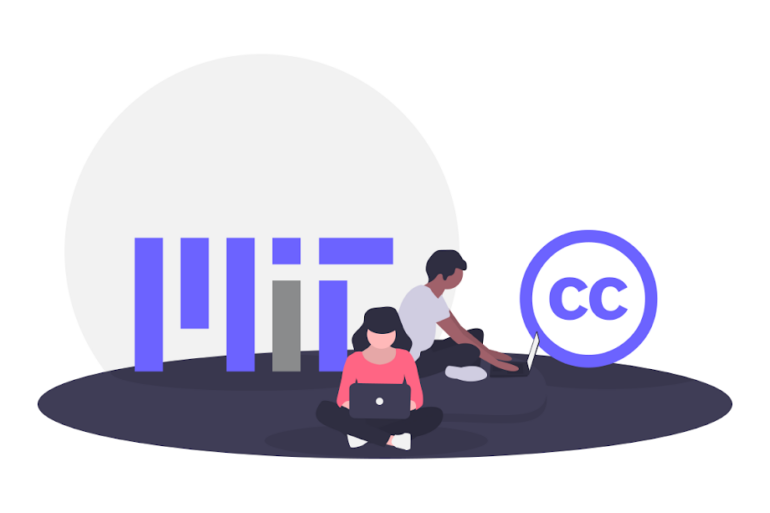What is PHP?
PHP is a widely used, multi-paradigm, imperative, functional, object-oriented, reflective, open-source scripting language that executes scripts on the server. PHP allows web developers to create interactive and dynamic content that can interact with the databases. The applications written in this language run on servers and do not need any online browser to run. PHP is utilized mainly in developing web applications which becomes one of the most important languages for developing any new application. Reputed social networking sites such as Facebook and leading reputed organizations like Harvard University are also supported by the PHP language framework which makes it more popular and increases the credibility of the language. This language is best for beginners who are designing their first-ever code and for professionals who are about to go deep into the language and work on it is also powerful enough to be at the core end of the biggest websites on the internet.
Why should you learn PHP?
The PHP: Hypertext Preprocessor was developed by Danish-Canadian programmer Rasmus Lerdorf who unleashed the first version of it in the year 1994. PHP is a must language for all those who are working in the web development department. The reason why one should learn PHP is because: –
- PHP works well with HTML and databases thus making it a first-choice language for anyone interested in building dynamic, user-interactive web applications.
- The syntax of PHP language is very much similar to the C programming language which makes it easy to learn.
- PHP is a forgiving language that is it tries to be as forgiving as possible thus making itself a first choice for entry-level programmers.
- It is a server-side open-source object-oriented scripting language that is embedded with HTML. It can be used to manage dynamic and interactive content, databases, session tracking and even entirely build websites.
- The PHP: Hypertext Preprocessor language is integrated with a large number of popular databases such as MySQL, Oracle, Microsoft SQL Server, Informix, PostgreSQL, Sybase, etc.
- PHP language is simply active and dynamic in its execution, especially when it is compiled as an Apache module on the Unix side. The MySQL server is even capable of executing very complex code queries with great result sets in record-setting time.
- The PHP language also supports a huge number of major protocols such as POP3, LDAP and IMAP. With an advanced version of the PHP language, it can even support Java and distributed object-oriented architectures (such as COM) thus making n-tier development a possibility for the very first time.
- PHP: Hypertext Preprocessor is also a simple, efficient, secure, flexible and familiar language that makes it best for both entry-level and advanced-level programmers.
Applications of PHP Language
PHP is one of the most widely used, general-purpose, open-source scripting languages and has many applications as well. Some of them are listed below: –
- PHP is a foundation of many CMS (like WordPress, Joomla, Drupal, etc.), e-commerce platforms (like WooCommerce, Magento, etc.) and web development frameworks (like MongoDB, Django, Laravel, CakePHP, Symfony, etc.
- PHP language can readily handle forms, that is it can gather data from files, add data to a file, save data to a file, send data to any other computer through email and also return data to the user.
- PHP is even capable of performing system functions that is it can create, open, read, write, close and send the files on a system.
- With PHP one can also add, delete and modify elements within the databases.
- It also helps in accessing cookies variables and setting cookies.
- PHP is also capable of encrypting data,
- With PHP, the programmer can restrict other users from accessing some pages of their websites.
- It is used for developing E-commerce websites and web applications.
- PHP is used in the Content Management System.
- It is also used for Data Analytics and Representation.
- It can also be used for developing features of Flash.
- It is used for processing images and for Graphical Interface design-based applications.
Advantages of PHP
- It is free of cost and is open-source can readily be downloaded anywhere and can be made to use for the development of web-based applications.
- It is a platform-independent language so web applications based on PHP language can be run on any operating system maybe Windows, Linux, MacOS, Unix, etc.
- The applications which are based on PHP can readily be loaded anywhere and can be connected to the database.
- It is also used mainly because of its faster loading rate as compared to other server-side programming languages. Even on slow internet, it can load at a faster speed.
- It has less learning which makes it straightforward in understanding as well as usage. Also, if a programmer is known to C programming language, then they can easily work on PHP as well and the syntax of PHP is very similar to the C programming language.
- It is also a stable language and does provide continuous assistance support to various versions rolled out.
- The PHP language also helps in reusing any equivalent code and does not demand writing lengthy codes again and again. Its sophisticated structure can be used in the event of web applications.
- It also helps in managing codes easily.
- The PHP language has powerful library support which can be used for various function modules for data representation.
- The built-in database connection modules feature of PHP helps in connecting the database and easily reduces the trouble and time required for the creation of web-based applications and content-based websites.
- The popularity of PHP gives rise to various communities of web developers.
- PHP language is flexible enough that it can even be effectively combined with other programming languages so that the software package could use the effective technology for the concerned feature.
Disadvantages of PHP
- It is not as secure due to its open-source structure because the ASCII text files are often very easily available.
- It cannot be used for the creation of very giant content-based web applications. Also, it has a weak type which can transmit incorrect data and knowledge to the user.
- PHP frameworks are to be learnt to use PHP built-in functionalities to reduce writing additional code. This in a way does increase the learning task.
- If more PHP frameworks and tools features are used then it causes poor performance on part of the online applications based on PHP.
- PHP doesn’t permit any change or modification in the core behaviour of the online applications. Also, the PHP frameworks aren’t that equivalent in performance and behaviour so their applications do exhibit similar performance and behaviour in features.
- Though PHP is a powerful tool supported by an outsized community and plentiful reference documentation, there are even more easier programming languages for web applications.
- Developers even believe that PHP features a poor quality of handling errors and that it lacks debugging tools which are required for checking errors and warnings.
- PHP is not a competent module so it is really tough to manage and also it imitates the features of Java programming language.
Though PHP has some disadvantages, it still is one of the most widely learned and used programming languages for web development applications. In the domain of web development, PHP has lots and lots to offer and is also a great language for entry-level programmers. So, to learn more about the PHP language do visit the DockLearn website.





